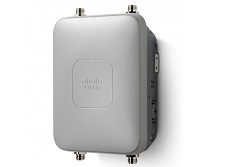A wide-ranging update to Cisco’s small cells portfolio, including adding 4G LTE capability to its Universal Small Cell solution, and CloudBerry launching an operator neutral small cells service were among the key announcements at Mobile World Congress.
As well as introducing 4G LTE capability, Cisco is also launching its first multimode small cell that provides 3G, 4G and carrier grade Wi-Fi through a single access point. The vendor said the launch was in response to growing demand from enterprises and operators to provide connectivity across a range of mobile devices.
The US-based company also rolled out its Quantum SON product to its Universal Small Cell protfolio, which will be built into every access point and delivered at the network layer.
Cisco said the service, which offers self-installation, self-optimisation and self-healing, would help operators reduce their capital expenditure.
The vendor also launched an update to its cell site router portfolio to add the backhaul capabilities needed to deploy enterprise small cells. The ASR 901 Secure Mobile Transport platform helps shift mobile traffic from enterprise networks through public networks to a carrier’s network.
It has added an IPSec acceleration to the ASR 901 to help ensure the safe transport of data.
Meanwhile, CloudBerry said its new small cell service would remove the need to install multiple radios or negotiate several contracts with numerous operators.
It said the service could be deployed in high-density public areas, like stadiums or shopping centres, or multi-tenant buildings. The software connects Cisco small cells to each network operators via the company’s small cells gateway.
Tom Guldberg, CEO of Cloudberry, commented: “There is huge interest in small cells from enterprises and commercial landlords, however, providing support for multiple operators has posed a significant problem. The Cloudberry neutral network solution provides support for subscribers of all operators, allowing coverage and capacity to be quickly added into any office, venue or commercial building.”
Meanwhile, ip.access has released a new range of small cells aimed at capturing location based data. The Presence range will be targeted at companies seeking retail analytics, or offering mobile finance or promotions. The cells are based on the FSM small cells solutions, which were built by Qualcomm Technologies. The company said it will provide the back-end processing to deliver secure and anonymous information to the relevant company. The cells are compatible with more than two billion 3G handsets, without any modifications required.
Simon Brown, ip.access’ CEO, said: “Presence Cells are about capturing data and providing supporting services and value. It’s a completely new breed of small cells with unique capabilities to support an exciting but specific vertical segment’s need.”



